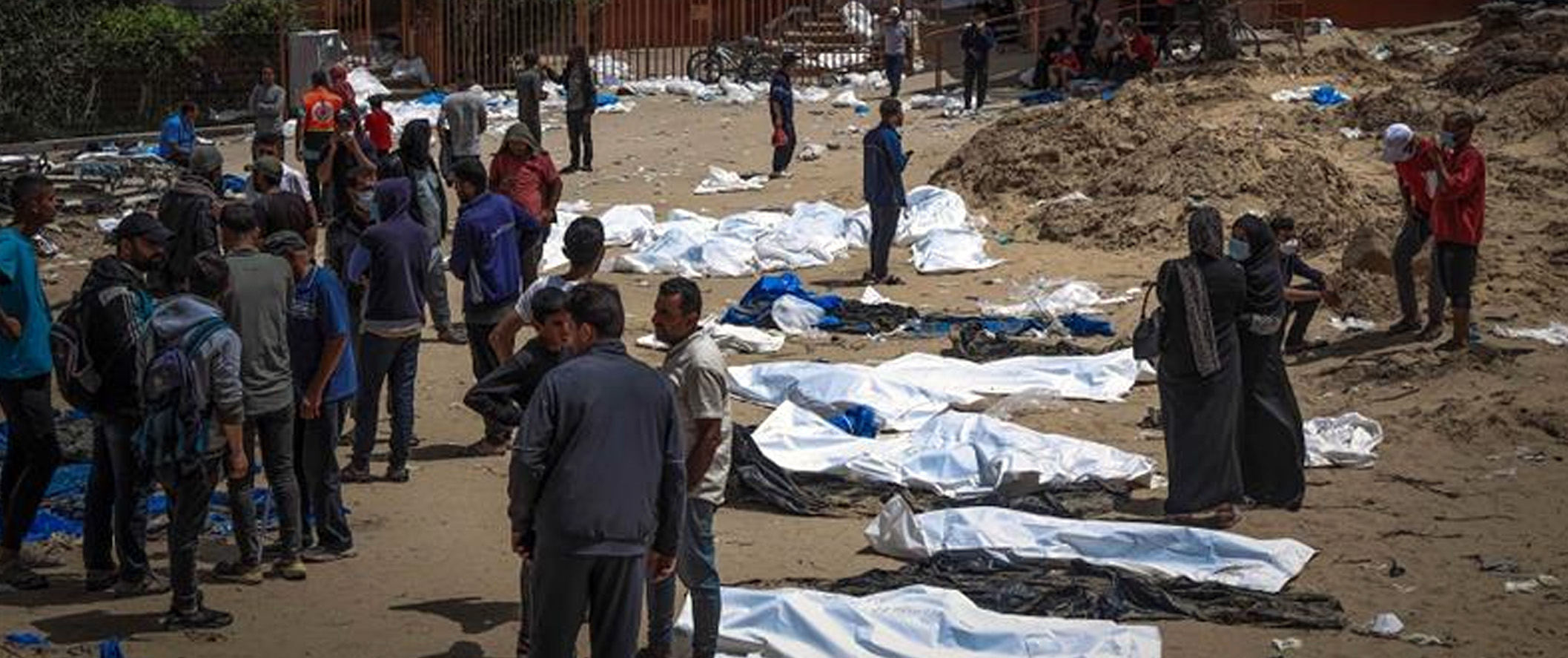Geneva | WTNS | May 12:The UN Security Council issued a call for an investigation into mass graves recently discovered near medical facilities in the Gaza Strip.
These graves, containing hundreds of bodies, were found in close proximity to the Nasser Hospital in Khan Younis and the Al-Shifa Hospital in Gaza City over the past few weeks.
Last month, the UN High Commissioner for Human Rights, referencing the Palestinian civil defense, reported that some of the bodies had their hands bound. Under international humanitarian law, hospitals and other medical establishments are granted special protections.
“A statement from Britain’s UN mission emphasized the urgent need for immediate, independent, thorough, comprehensive, transparent, and impartial investigations into the mass graves found at the Nasser and Al Shifa medical facilities in Gaza,” the Security Council stated. It stressed the necessity for accountability regarding violations of international law.
Despite the passage of time since Israeli forces besieged them, Palestinian emergency workers continue to uncover mass graves in and around three hospitals in Gaza. Palestinian officials have disclosed that more than 500 bodies have been recovered, with several displaying signs of mutilation and torture, potentially constituting war crimes. Israel’s military, however, has refuted these allegations.
Various international bodies, including the United Nations and the European Union, have echoed calls for an independent investigation to ascertain the truth and ensure accountability. UN spokesperson Stephane Dujarric emphasized the importance of preserving all forensic evidence.
However, as Israel escalates its offensive on the southern city of Rafah and restricts access by closing the crossing into Egypt, forensic teams or equipment cannot be deployed into Gaza. Consequently, burial sites are being disturbed, and evidence is being collected haphazardly, complicating the search for truth.
While experts acknowledge the challenges posed by the disturbance of potential evidence of war crimes, they remain hopeful for justice. So far, three mass graves have been identified at the Nasser Medical Complex in Khan Younis, three at al-Shifa Hospital in Gaza City, and one at the Kamal Adwan Hospital in Beit Lahiya.
Mohammad Zaanin, a member of the Palestinian Civil Defence in Gaza, revealed that another gravesite containing 42 bodies had been discovered at al-Shifa Hospital, though the bodies were decomposed and unrecognizable. Civil Defence teams, lacking proper protective gear and forensic equipment, are documenting the remains through photos and videos, albeit under significant pressure.
Thani Nimr Abdel Rahman, affiliated with the Al Mezan Center for Human Rights in Gaza’s Jabalia refugee camp, described witnessing the excavation of burial sites at al-Shifa Hospital using bulldozers. Before the deceased are reburied elsewhere, relatives search for clothing remnants around the remains as a means of identification. However, the absence of adequate resources and forensic experts in Gaza exacerbates the challenges faced in this endeavor.



